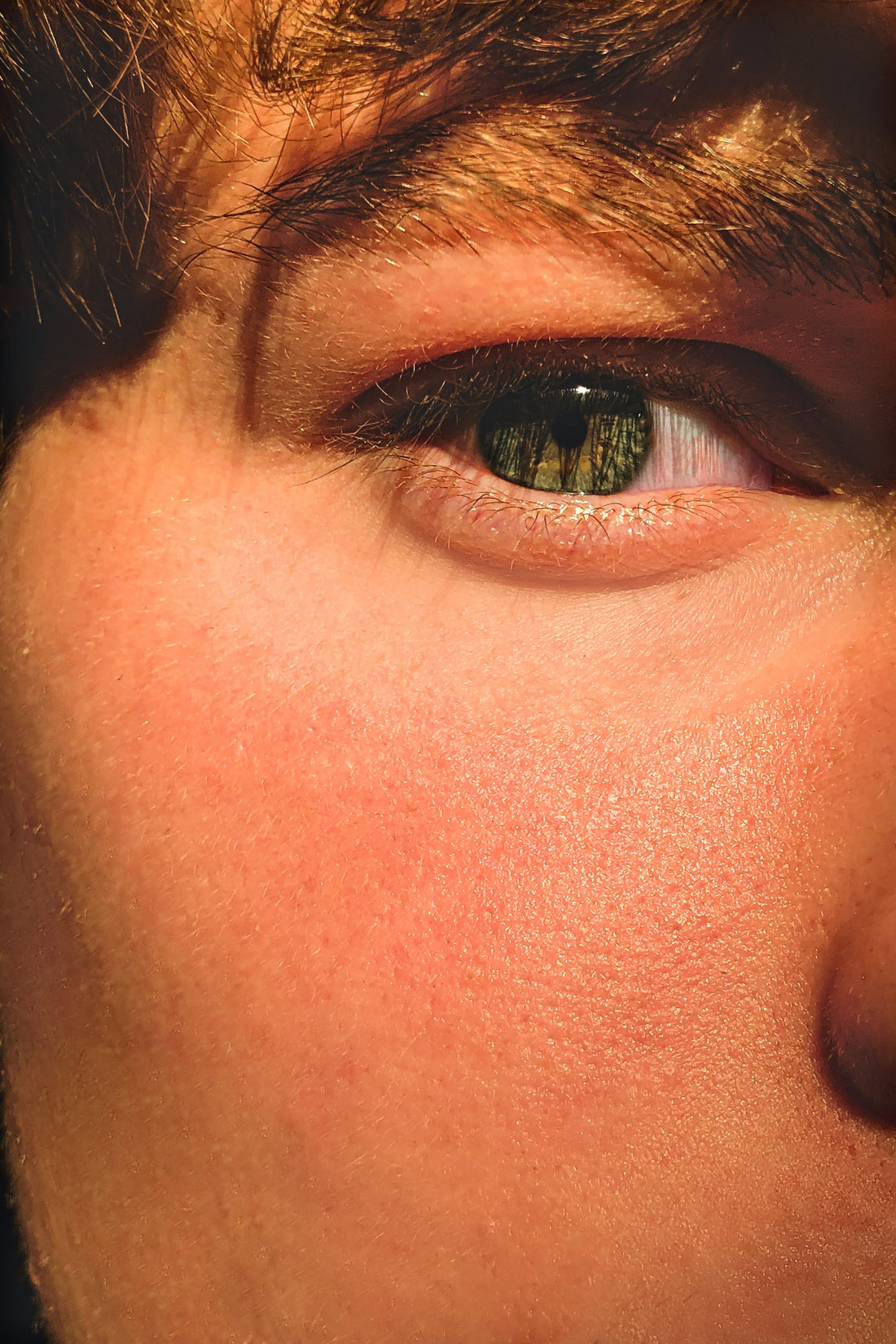Is Dry Skin and Dehydrated Skin The Same or Different?
Dry skin, parched skin, sand-paper skin, dehydrated skin - is it all the same?
Turns out, no. It’s not all the same. In fact, dry skin and dehydrated skin are two very different things.
Dry skin is a skin type. So when you say “I have oily skin” or “I have dry skin” or “I have sensitive skin”. It’s the way your skin typically presents.
Dehydrated skin is a condition your skin is transitioning in or out of - and can be treated with rather simple steps.
What Is Dry Skin?
Dry skin is a skin condition where the skin’s outer layer lacks oil. People with dry skin means your skin naturally produces less of its natural oil.
For skin to be at its best, most loved up self, it needs a healthy balance of oil. The oil helps to keep your skin moisturised, soft and smooth. Without the oil, the barrier of your skin is more susceptible to damage (it’s a bit less protected).
If you have dry skin you could also be prone to conditions like irritation, atopic dermatitis (eczema) and inflammation.
What Does Dry Skin Feel Like?
Dry skin which is left to its own devices can feel rough, flaky and itchy. It can feel thin, fragile and tight. It can also appear with redness and irritation.
How To Take Care Of Dry Skin
If you have a dry skin type, you will know it by now, it can be taken care of. Yes it’s your skin type, and yes you probably won’t ever rid yourself of dry skin BUT with daily care and the right products, you can manage it and keep it healthy.
Dry Skin Needs Hydration
Hydrate your skin from within by drinking water and avoiding any products that add to excess dryness. However, as we know dry skin lacks natural oils, you can combat your dry skin by using excellent quality face oils (or elixirs) and seal them with a moisture-rich cream or thicker moisturiser.
Dry Skin Needs A Little Extra Love
Your dry skin will most likely benefit from some extra hydrating masks, treatments or deeply nourishing beauty experiences. You can talk to your local, trusted beauty therapist about what can suit your dry skin the best. In the meantime, investigate serums - they’ll be your bestie in a bottle.
What Is Dehydrated Skin?
Dehydrated skin is skin that is lacking moisture. So while dry skin needs oil, dehydrated skin needs water.
Dehydrated skin is a temporary condition and even the oiliest of skins can go through stages of dehydration. Typically, dehydrated skin is caused by factors we can control - our water consumption, our diet (too many coffees), our smoking habits and our habitat (too much use of air-con or heaters).
Dehydrated skin can also be caused by using products that contain known irritants, chemicals, and drying agents (like alcohol).
What Does Dehydrated Skin Feel Like?
Dehydrated skin can feel tight or taught and can lack that certain sparkle you normally have. It looks dull and can cause your fine lines and wrinkles to be more noticeable and [gasp] deeper.
When your skin is chronically dehydrated you could even see some breakouts and irritation.
Basically, we want to avoid all of these things!
How Can I Combat Dehydrated Skin?
The good news is; that your skin can easily be rehydrated.
-
Drink More Water
Drink more water. Drink more water. Drink more water.
-
Ditch The Caffeine
Consider skipping the second or third flat white. As much as you may need that afternoon pick me up, try to find it from a non-caffeine source. And drink more water.
-
Quit Smoking
Do we really need to say that in 2022? You get it.
-
Exfoliate or Polish Your Skin
If you do not exfoliate your skin, any dead skin cells will build up and could cause congestion (aka breakouts). Gentle exfoliation will clear all the dehydrated skin off your face and allow your skin to breathe and be prepped to absorb all the hydrating products you use right after.
-
Get To Know Hydrating Ingredients And Products Real Well
Hydrating ingredients like aloe vera, hyaluronic acid and rosehip. Serums (which contain a concentrated, active ingredient) will help the skin hydrate from within. Use a serum that contains hyaluronic acid (like our Hyaluronic Acid Serum - which is one of the strongest on the market). This will help to bring back the PLUMP.
-
Touch Base With Your Skin
Your skin is constantly changing. A skin care routine or set of products that could have worked last year, or last season may not be the best for your skin right now. By cleansing, toning, exfoliating, moisturising and using serums to combat different skin conditions as they appear you will keep on top of your skin’s needs and cater to them correctly.
For Both Dry And Dehydrated Skin, Use Plant-Based Skin Care Products
We may be slightly biased on the topic, but at Queen Street Apothecary we feel that a 100% vegan, plant-based skin care regime is better for you, your skin and the planet. Our range of products are designed to feel really good, for your skin and soul. Find products (like ours) that are free from: Sulphates, Phthalates, Synthetic Colours, Synthetic Fragrances Parabens and Petrochemicals.
What A Change Of Season Means For Your Skin
The change of season (either coming into Winter or Summer) means that a change in heat, temperature and climate can see your skin change condition or even texture. In Winter you will typically see dehydrated skin as the air is dryer and we go in and out of cold and warm environments. If you love the heater blasting on you of a night time, you might find you wake up with dehydrated skin each morning.
The parched skin will feel tight or even sore. It can also help to exacerbate any fine lines or wrinkles you may have (oh no). To help combat this, invest in quality serums and moisturisers to use through Winter and make sure you’re doing your best to keep your skin smooth, plump and hydrated.
So dry skin is your skin type. Dehydrated skin is a temporary condition you can change! If you have any questions, please let us know. Happy Shopping.



